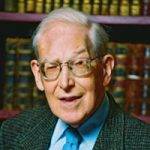Authority and freedom

Notes from chapter 1 of Freedom, Authority and Scripture, by J.I. Packer.
“Authority” – makes most people think of law and order, direction and restraint, command and control, dominance and submission, respect and obedience. The word has almost become a “dirty word”. Opposition to authority is now the name of the game.
The Quest for Freedom
“Freedom”, on the other hand, is today the “in word”; World War II was described in terms of Four Freedoms: want, fear, speech, religion. Therapists labour to
free us from our inhibitions. Sexual freedom. Freedom from social evils. Freedom of expression. Freedom from restrictions.
Freedom has become an obsession. It always involves rejection of authority.
This concept of freedom has its roots in philosophy: in dreams of the perfectibility of man, Rousseau’s idea that society squeezes you out of shape, and in the educationalists view that inside each little demon in a little angel waiting to get out.
Personal experience adds its weight to this conception: bad experiences of harsh and stifling authority at home, at school, in church, at work, etc, have fueled the fires of revolt. Result: all forms of authority are seen as cell walls, from which we must escape.
The truth is, that there is no true freedom apart from external authority. Anarchy is the worst bondage of all.
What is Authority?
The word signifies the right to rule. Various sources and sorts of authority: documents for scholars, statutes for lawyers, parents for young children, etc.
In the realms of belief, truth has authority; in the realms of behaviour, the moral law has authority.
Historic Christianity receives the Bible as authoritative on the grounds that it comes from the God of all truth and righteousness.
Exercise of authority is not necessarily authoritarian. This is degenerate authority; authority which demands submission when this cannot be justified on the grounds of truth or morality.
Part of the Christian doctrine of Biblical authority rests on the fact that the Bible sets before us accurately the factual and moral nature of things, and so its teaching warrants being decisive in our lives.
Authority in Human Lives
Authority principles have formative and integrative effects on the people who embrace them. They unify both personal and corporate life. Some of these authority-principles may seem to the Christian to be ruinously wrong, but they do give shape, and aim to life. But the Christian authority-principle leads to man’s chief end.
The Christian view of authority has contributed immensely to civilisation. So its view of womanhood. And so its view of the sanctity of human life.
‘A church in which scriptural teaching is no longer authoritative is already going with the world and has no ground on which to stand against it.’
What is Freedom?
A free world. Permissiveness. French Revolution: “Liberty-equality-fraternity.” Pop songs.
But there is no real agreement on what freedom is. One conception of it seeks to break bonds and abolish restriction. It seeks freedom from. In pursuing it, some hit out, others drop out, and still others throw out (Christianity).
The results are unimpressive: hippy-ness, freethinking, women’s lib, ‘The idea that freedom is what you have when you have thrown off all that represses or constrains you is a false trail which leads nowhere save to puzzlement and disillusioned bitterness.’
The second approach to freedom is distinctively Christian. It is defined in terms of the unchanging realities of the inner life. It starts with freedom from but centres on freedom to: freedom to love and serve God. When we fulfill the potential of our own created nature by worshipping and serving God from the heart then we experience freedom. ‘Their freedom is freedom not to do wrong, but to do right; not to break the moral law, but to keep it; not to forget God, but to cleave to him every moment, in every endeavor and relationship; not to abuse and exploit others, but to lay down one’s life for them.’ Such freedom is beyond the capacity of fallen human nature. We scarcely even recognise it as freedom: but this is the life we were made for.
One aspect of this freedom is integrity – simplicity and purity of heart, free from the taint of self-regard. It is also spontaneous: positive and creative, rather than negative and wooden. Another aspect is contentment: investing the whole of life with a deep joy.
The source of this freedom: Jesus. Jn 8:36. See also Rom 6:1-7 and Gal 4:21-6:10.
Freedom, Authority, Scripture
This view of freedom demands, of course, that we accept the authority of God in Christ, and Scripture, and in the Holy Spirit. We must receive this freedom on God’s terms, or not at all.